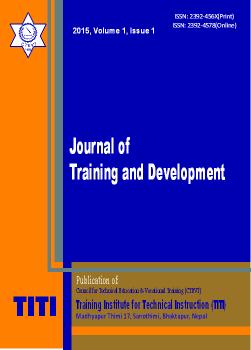Children affected by AIDS as challenged learner in Nepal
DOI:
https://doi.org/10.3126/jtd.v1i0.13092Keywords:
HIV, Children, and EducationAbstract
Nepal government and non-governmental organization are working in the field of education and focusing to ensure the quality of education with total enrolment of children in school. However, there is lacking to address the children affected by AIDS (CABA) to ensure the education rights and CABA compel to drop out from education. HIV issues are existing since 1998 but government of Nepal developed the policy on education to CABA in 2011; therefore we can analyze the status of government concentration on education to children affected by AIDS. The article is based on field experiences and secondary sources because I have been involving in this field since 1995 and focusing in children affected by AIDS. Stigma and discrimination is the main cause to drop the school by children affected by AIDS and there are no specific strategies to intervene to continue the education of children affected by AIDS. Government of Nepal has program to other children like children with disability or scheduled caste or geographical based but do not have the program to support the children affected by AIDS. Children affected by AIDS have always challenges to face the stigma and discrimination at schools and society which directly affect on their education.
DOI: http://dx.doi.org/10.3126/jtd.v1i0.13092
Journal of Training and Development Vol.1 2015: 62-66
Downloads
Downloads
Published
How to Cite
Issue
Section
License
Authors who publish with this journal agree to the following terms:
- Authors retain copyright and grant the journal right of first publication with the work simultaneously licensed under a Creative Commons Attribution License that allows others to share the work with an acknowledgement of the work's authorship and initial publication in this journal.
- Authors are able to enter into separate, additional contractual arrangements for the non-exclusive distribution of the journal's published version of the work (e.g., post it to an institutional repository or publish it in a book), with an acknowledgement of its initial publication in this journal.
- Authors are permitted and encouraged to post their work online (e.g., in institutional repositories or on their website) prior to and during the submission process, as it can lead to productive exchanges, as well as earlier and greater citation of published work (See The Effect of Open Access).




